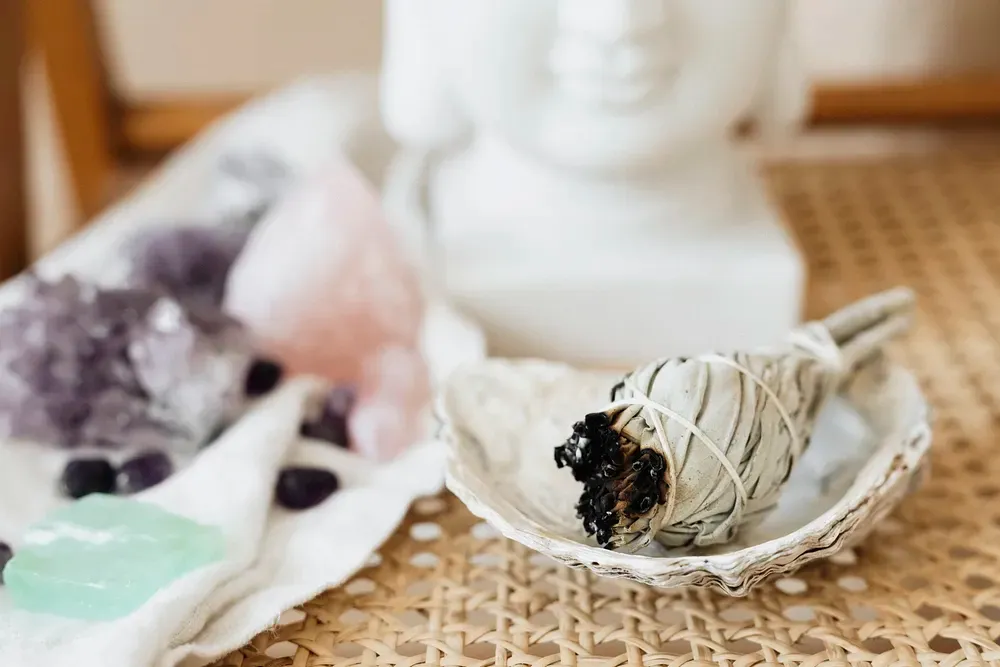Meditation: How It Can Help You Through COVID

Meditation: How It Can Help You Through COVID
To say that COVID-19 has been a stressful time is a drastic understatement. Parents are juggling working at home and caring for their children. Many of us haven’t seen friends or family due to distance, disorder, and even death. Indeed, COVID-19 is beyond stressful for almost all of us.
As we adjust to the global pandemic and live in a new normal, you might feel anger, grief, or depression. These negative emotions aren’t bad to have, but they aren’t good to hold on to, either. Letting go is hard, but fortunately, there is one tool that can help: meditation. Let’s take a look at how meditation can help you deal with the
stress and tension from COVID-19.
Why Meditate
Scientific findings on meditation show that it has a profound impact on your emotional well-being by clearing away the mental clutter that adds to stress. Researchers at
MSU found that meditation can increase focus and widen your perspective, helping you manage stressful situations and increase self-awareness. With meditation, you focus on the present, which can reduce anxiety and depression and also increase patience and tolerance — with yourself as much as with others.
While a growing body of scientific research supports the mental health benefits of meditation, there is also evidence that it can positively impact your physical health, as well. Meditation can ease the symptoms of conditions such as:
- Asthma
- Cancer
- Chronic pain
- Heart disease
- High blood pressure
- Irritable bowel syndrome
- Tension headaches
While meditation isn't a substitute for medical treatment, it may be a useful tool, along with other means of managing stressful situations like COVID-19.
Ways to Meditate
Meditation is a very broad term for the various ways you can induce a peaceful state of being. There are many ways to meditate, but they all share a common goal: to achieve inner peace.
Here are a few techniques that can be effective for people just starting their meditation journey and those who have been on this path for a while:
Mindfulness: Stay connected to the present moment by focusing on the flow of your breath and letting go of intrusive thoughts.- Contemplative Prayer: Use one word or a simple prayer to sit in silence and stillness to feel closer to a higher power — be it God, the universe, nature, or whatever name you choose.
- Transcendental Meditation: Silently repeat a mantra — such as a word, sound, or phrase — to stay in a state of rest without needing too much effort.
- Yoga: Through a series of postures (asanas) and controlled breathing exercises (pranayama), you can create both a flexible body and mind.
- Guided Meditation: Use your senses to visualize places or situations you find relaxing.
You can also try one or several award-winning
meditation apps like Calm or Headspace to help you discover the technique that works best for you. You can listen to one when you walk the dog. Even just sitting in silence for 10 minutes every morning can have a major impact.
Where to Meditate
While you don’t need any special tools to meditate, it can be helpful to make a special meditation space to help you get into the moment. Meditation is emotional and physical, but it can also be spiritual. Before you begin, Redfin recommends clearing the air by using purification rituals to
remove bad energy from your meditation space. Choose a spot where you won’t be distracted, have plenty of natural light, and can stay seated for long periods of time. Some people enjoy a meditation practice that is accompanied by soft music and aromatherapy.
Whatever meditation path you choose, be sure to stick with it for a few weeks so you can really see the change in your life. Make it a part of your self-care plan, so you can really commit to the habit. Also, make this time one of hope and healing, progress and practice, so you can find the silver lining in these dark and disorderly days.
Increase your metabolism, build lean muscle, and lose fat with personal training from
Practical Fitness. Schedule a consultation today!





